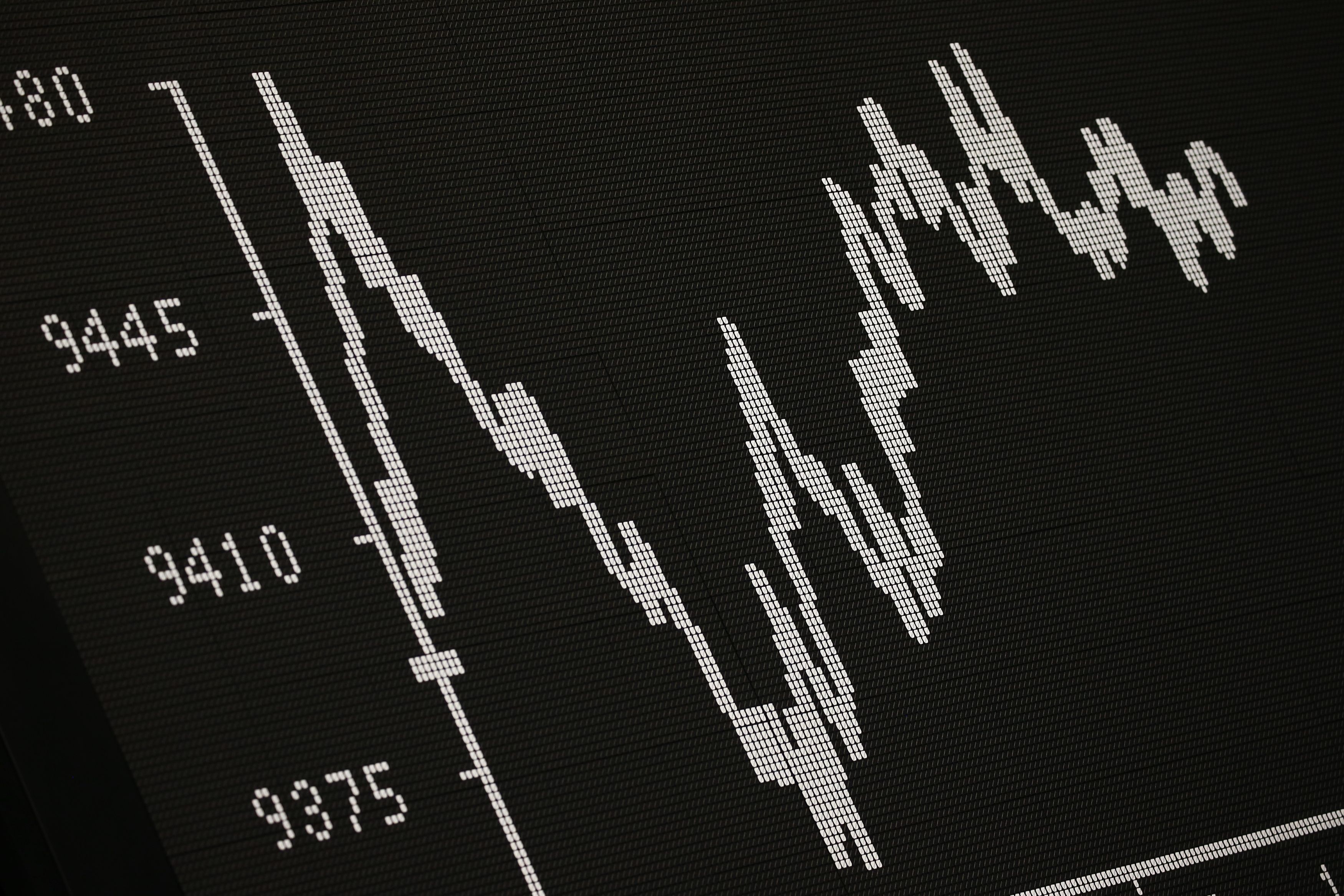By Amanda Cooper
LONDON, Feb 25 (Reuters) – Global shares traded cautiously higher on Tuesday, in light of growing evidence of a softening in the U.S. economy ahead of earnings from Nvidia NVDA.O, while the euro eased below the one-month highs that followed Germany’s weekend election.
Investors were rattled early on by an order from U.S. President Donald Trump to limit Chinese investments in strategic areas such as chips, AI and aerospace.
Having pushed stocks on both sides of the Atlantic to record highs this month, investors are getting uneasy and Wednesday’s results from Nvidia, which has come to characterise the boom in artificial intelligence investment, could prove instrumental in setting the mood for the remainder of the quarter.
In Europe, the STOXX 600 .STOXX rose 0.2%, while the euro EUR=EBS steadied around $1.047, having topped $1.05 for the first time in a month on Monday, after Friedrich Merz’s opposition conservatives won Germany’s national election.
ANALYSIS: Forty-Six Years After Revolution, Iran’s Economy Is Struggling
The euro is up around 1% so far this year, but is still one of the worst-performing major currencies against the dollar, given its high exposure to the risk of tariffs.
Trump’s planned duties on U.S. imports risk pushing up domestic inflation, while his mass firings of government employees could impact the labour market, just when the Federal Reserve needs room to cut interest rates.
Tension between the United States and Europe has also risen over Ukraine and how to broker a ceasefire agreement with Russia.
Sentiment in the markets is fragile, but there has not been much in the way of volatility, Chris Beauchamp, chief strategist at IG, said.
“This is a sharp contrast to the past couple of years where crises seem to come one at a time and then, you could just deal with them when they occurred, and now it seems to be ‘everything, everywhere, all at once’,” he said.
“There are reasons to be optimistic, I think. If you look at earnings season, it’s gone really well. But of course, the headlines and the signs of fracture between Europe and the U.S. – it doesn’t directly affect … stocks, but it just makes sentiment all the more febrile.”
NOT SO EXCEPTIONAL
Meanwhile, negative surprises in U.S. economic data have accelerated this month, led by unwelcome pickups in things like consumer inflation expectations and, most recently, by a drop in overall business activity.
The futures market shows traders expect the Fed to cut rates by around 50 basis points this year, up from 40 bps a week ago. 0#USDIRPR
U.S. stock futures pared earlier losses on Tuesday to trade unchanged on the day ESc1, NQc1, indicating a steadier start later on Wall Street, where technology stocks tumbled overnight.
EXCLUSIVE – U.S. Piles Pressure on Iraq to Resume Kurdish Oil Exports, Sources Say
Since China’s low-cost AI model from DeepSeek burst onto the scene in late January, investors have started to question whether the hefty spending on this technology is justified and a lot will be riding on Nvidia’s fourth-quarter earnings.
Chinese retail investors have poured into AI-linked stocks on the domestic market this month, sending the Hong Kong equity index .HIS to three-year highs.
A Bloomberg report overnight that Washington is seeking to toughen restrictions on the export of semiconductor technology to China, with the help of allies, sent shares in tech giant Alibaba 9988.HK down 3%.
“The optimism about China’s tech sector cools off as markets realise that the more positive the outlook for the sector, the greater the risk it will be targeted by the U.S.,” said Kyle Rodda, a senior analyst at Capital.com.
Trump also indicated overnight that proposed tariffs on Mexico and Canada were still set to start next week, which nudged the U.S. dollar up marginally against its Canadian counterpart CAD=EBS.
Yields on the 10-year Treasury note US10YT=RR fell 5 basis points to 4.346%, around their lowest for two months.
In commodities, Brent crude futures LCOc1 edged up 0.1% to $74.85 a barrel, following fresh U.S. sanctions imposed on Iran, while gold XAU= fell 0.4% to $2,940 an ounce, having hit a record high of $2,956.15 on Monday.
Bitcoin BTC= ran into some profit-taking, falling by as much as 6% to below $89,000, as traders continued to process last week’s hack of $1.5 billion worth of ether from cryptoexchange Bybit.
(Additional reporting by Stella Qiu in Sydney; Editing by Gerry Doyle, Jamie Freed and Sharon Singleton)














